Iran's Vice President Says 'Enmity' With US Will Not End With Talks
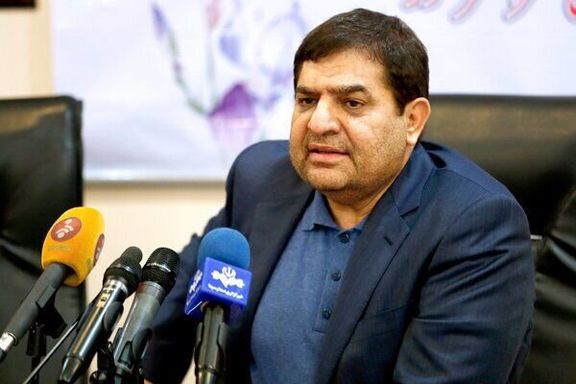
Iran’s problem with the “enemy” is fundamental and will never be resolved with negotiations, Vice President Mohammad Mokhber told reporters on Tuesday.

Iran’s problem with the “enemy” is fundamental and will never be resolved with negotiations, Vice President Mohammad Mokhber told reporters on Tuesday.
Without naming the United States, Mokhber said, “Some think [the problem with the enemy] will be resolved through talks, but it is not so, although we should negotiate to lift the sanctions.”
Praising what he called the people’s readiness to sacrifice, the vice president added, “In negotiating with the West we need to be in a position of power and the enemy should accept that it cannot eradicate us. This crucial need cannot be addressed with ballistic missiles, but with people’s support and their high spirits.”
He compared the current situation with the 8-year war between Iran and Iraq in the 1980s, to highlight the importance of sacrifices by the people.
Mokhber’s comments come as Iran’s decade-old economic crisis has led to repeated protests and labor strikes since 2017 and the weakening of regime’s legitimacy. The June 2021 presidential elections also saw the lowest turnout in the 43-year history of the Islamic Republic.
Mokhber was a top business manager in the office of Supreme Leader Ali Khamenei before becoming President Ebrahim Raisi’s first vice president. He was the director of the Execution of Imam Khomein’s Order, an entity meant to be a charitable organization, which has become a business conglomerate by controlling companies, banks and businesses.
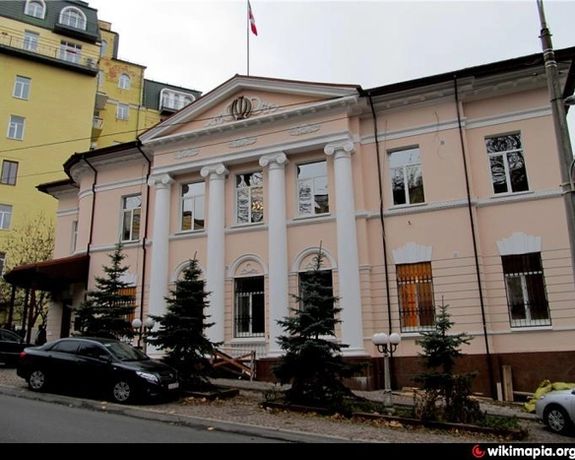
Iran says its embassy in Ukraine will temporarily relocate to Moldova due to the Russian invasion of the country.
The Embassy of the Islamic Republic in Kyiv issued a statement on Tuesday, announcing the temporary transfer of the embassy to the Moldovan capital.
The statement said that “due to the ongoing war in Ukraine and the impossibility of continuing the embassy’s operations” the embassy moves to Chișinău “until the situation normalizes”.
About a month into the invasion, Russia continues its bombardment of several Ukrainian cities while its troops and artillery remain on the outskirts of Kyiv.
Dozens of Iranian students stranded in the first week of invasion in Ukraine later left the country via land corridors to Romania and other Eastern European countries.
Tehran has backed Moscow in the invasion baling the United States and Nato for the crisis. However, clear media divide has emerged in Iran over the war in Ukraine, with some hardliner media repeating Moscow’s propaganda and others trying to reflect reality.
Russia's ambassador in Iran has said that Moscow will continue its "special military operation" in Ukraine until its objectives are attained.
However, former senior Iranian lawmaker Heshmatollah Falahatpisheh has said that the crisis in Ukraine provides a golden opportunity for Iran to get a foothold in international energy markets.
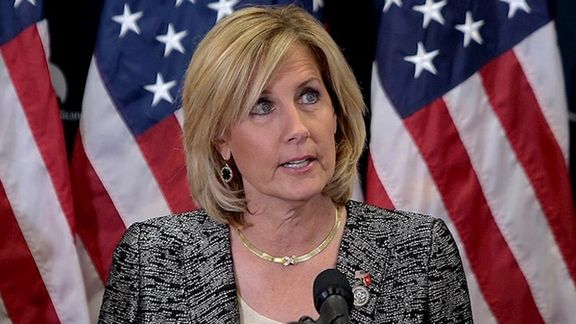
A Republican Congresswoman has criticized the Biden administration for considering removing Iran’s Revolutionary Guards from the US foreign terrorist blacklist.
Representative Claudia Tenney said in a tweet on Monday that “the IRGC is actively plotting to kill Americans in the United States and has already killed Americans abroad”.
“Why is the Biden Administration even considering removing the group’s terrorist designation?” she asked.
The talk of removing the IRGC from the list has drawn sharp criticism from Republicans as well as Democrats since sources told Axios and Reuters last week that Washington is weighing the option in return for unspecified Iranian assurances.
Democratic congresswoman Elaine Luria, a naval veteran, said last week that reviving the JCPOA would “put Iran and Israel on a collision course,” echoing remarks by Israel’s ambassador to the United States Michael Herzog.
In addition to American officials, Israel’s prime minister and foreign minister have called on Washington to keep IRGC on the list, saying “The Revolutionary Guards are a terrorist organization that has murdered thousands of people, including Americans”.
Iranian officials have been publicly raising the issue since at least November, saying a ‘good deal’ would mean lifting sanctions on the Revolutionary Guard.
Such a step would reverse former President Donald Trump's 2019 blacklisting of the group, the first time the US had formally labeled part of another sovereign government as a terrorist group.
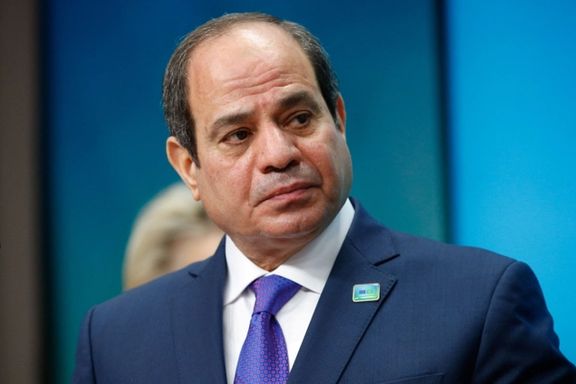
Egypt hosted Israel's prime minister and the de facto leader of the United Arab Emirates Monday, sources said, as talks to revive the Iran deal remain in limbo.
Although there was no official announcement about the presence of Israel’s Naftali Bennett, two Egyptian security sources told Reuters that President Abdel Fattah al-Sisi his guests held discussions that covered the consequences of the war in Ukraine.
Persian Gulf states were excluded from talks to revive the 2015 nuclear deal with Iran that they have criticized for not addressing Iran's missiles program and regional proxies, including in Yemen.
Egypt's presidency said Sisi and the UAE's Sheikh Mohammed bin Zayed al-Nahyan held expanded bilateral talks on issues including economic investment, in the Red Sea Resort of Sharm el-Sheikh.
Sisi stressed Egypt's commitment to security in the Persian Gulf and "rejection of any practices that seek to destabilize it," the presidency said in a statement.
The UAE along with Saudi Arabia has resisted Western calls to hike oil output and contain a jump in crude prices caused by the conflict in Ukraine.
Egypt faces new economic pressures due to the war that saw it devalue its currency by 14% on Monday. It has called on financial support from wealthy Gulf states in the past.
Bennett visited Egypt last September, the first official trip by an Israeli head of government to the country in a decade.
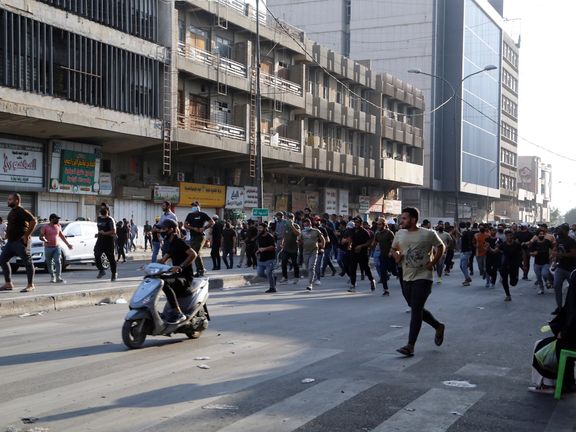
Turkish state-run news agency ran an opinion piece Monday arguing Iran is the biggest single threat to Iraq’s stability.
The piece described the state-linked Popular Mobilization Forces – which Iran helped set up in fighting against the Islamic State group – as a means just to strengthen Iran's military presence as part of a regional strategy also pursued in Lebanon, Syria, and Yemen.
The writer portrays Iran as directly interfering in internal Iraqi affairs for at least 20 years, not just through its relationship with militias but with missile attacks and influencing elections. Late in 2021, Iraq's Supreme Court rejected appeals by pro-Iran Shi'ite parties against results of a parliamentary poll in which they performed poorly.
Iraq has been a battlefield for influence between the United States and Iran since the 2003 US-led invasion, which toppled Saddam Hussein and created a path to power for a Shi'ite majority whose parties had been suppressed and had been based in Damascus or Tehran.
Turkey has long extended its influence in Iraq, especially in the Kurdish-held north and among allied Turkmen groups.
The Turkish news agency article portrayed visits to Iraq by Esmail Ghaani, leader of Iran’s extraterritorial Quds Force, as an example of Iran obstructing stability. It also mentioned the 2020 attack by rioters on the Baghdad office of the Kurdistan Democratic Party, the Kurdish party closest to Ankara.
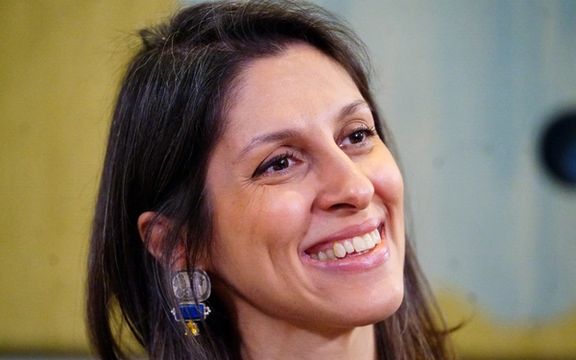
British Iranian Nazanin Zaghari-Ratcliffe says she saw five foreign secretaries change during six years of her detention in Iran without a deal to free her.
"That is unprecedented given the politics of the UK…What's happened now should have happened six years ago. I shouldn't have been in prison for six years," Zaghari-Ratcliffe said at a press conference in Westminster Monday, days after she regained her freedom.
Zaghari-Ratcliffe's MP Tulip Siddiq said she would be calling for a review by the Foreign Affairs Select Committee of the British parliament to investigate the delay in her release.
She was freed after the UK paid a four-decade-old £400m ($522 million) debt to Iran. Iranian state media in 2021 cited unidentified Iranian officials as saying that the British-Iranian aid worker would be freed once the debt had been paid. Iran's foreign minister Hossein Amir-Abdollahian last week claimed that the payment by Britain had nothing to do with the release of the Zaghari-Ratcliffe and Anoosheh Ashoori.
At the press conference she pointed out that "justice in Iran does not have any meaning" and apparently referring to Iran's negotiations with world powers over its nuclear issue, said that the freedom of dual nationals "should not be linked to international agreements."

Zaghari-Ratcliffe disclosed that soon after her arrest Iranian interrogators told her that she will be freed when the UK pays the money.
Following her release, Iran’s hardliner media continued to accuse her and other British- Iranian detainees of spying and highlighted that Tehran got paid to free them.
Recalling her experience in detention, she said it would always "haunt" her but declined to speak about her ordeal in solitary confinement, presumably due to the presence of her seven-year-old daughter Gabriella at the press conference.
The British Foreign Secretary Liz Truss claimed credit for negotiating a furlough for British-American-Iranian wildlife conservationist Morad Tahbaz, along with the release of Nazanin Zaghari-Ratcliffe and Anoosheh Ashoori.
"The world should come together to help other prisoners," she said, referring to other dual nationals still held in Iran including Tahbaz.
Morad Tahbaz, 66, was released from prison on furlough on the same day Zaghari-Ratcliffe and Ashoori left Iran to return to Britain.
Tahbaz's daughter, Roxanne, said Monday he had been taken back to prison two days after being released on furlough. She was in the press conference by the invitation of Zaghari-Ratcliffe and read a statement to bring attention to her father's circumstances and the family's plight. The family say he has gone on hunger strike.
“It’s been over four years now since my father was detained and my mother was put on a travel ban in Iran,” his daughter told the press conference Monday. "I’m here today to ask the question of why my father is the only UK-born national who has been abandoned and left behind there.”
Tahbaz's family fear he may fall through the diplomatic cracks with his triple nationality.
"He did not think that the UK government would abandon him. He was born in the UK," a family member who asked not to be identified told the BBC.
Tahbaz was arrested during a crackdown on environmental activists in January 2018.
There were contradictory statements on Monday whether he was taken to a “residential place” or was still in prison.
There are two more British-Iranian citizens still behind bars in Iran, labor rights activist Mehran Raoof and lawyer Shahram Shirkhani both of whom are serving ten years in jail for alleged spying.
Iran is still holding several other western dual nationals including American-Iranians Siyamak Namazi and his elderly father Bagher, American-Iranian businessman Emad Sharghi, and German-Iranian rights activist Nahid Taghavi.